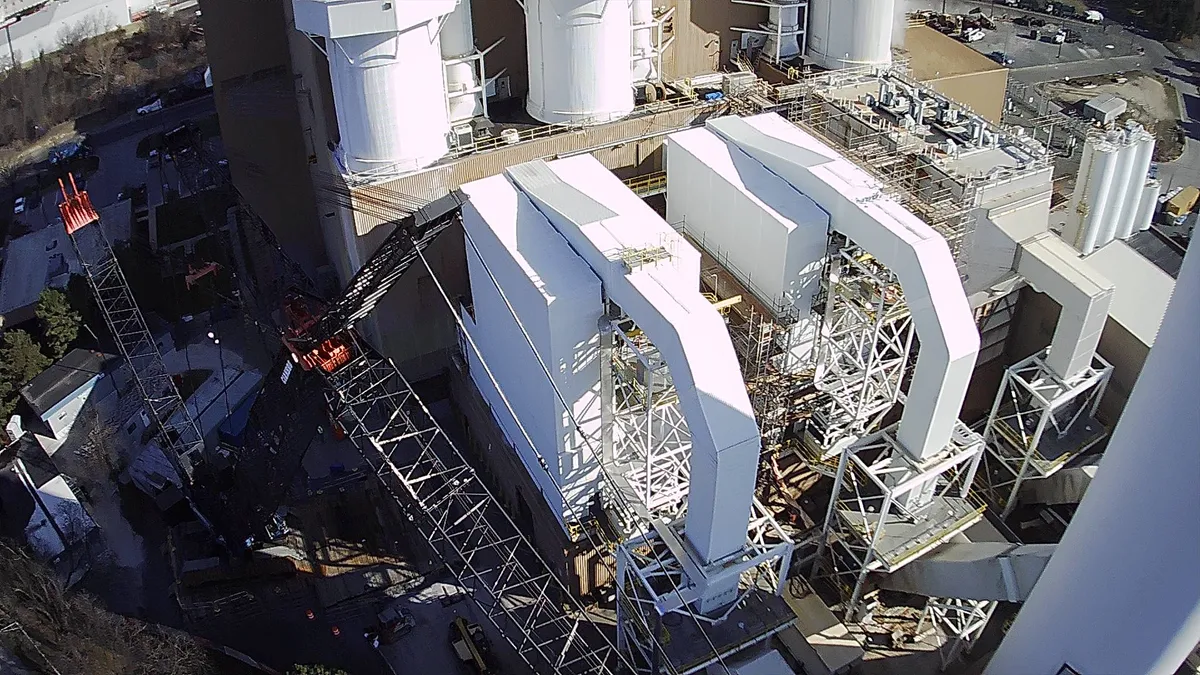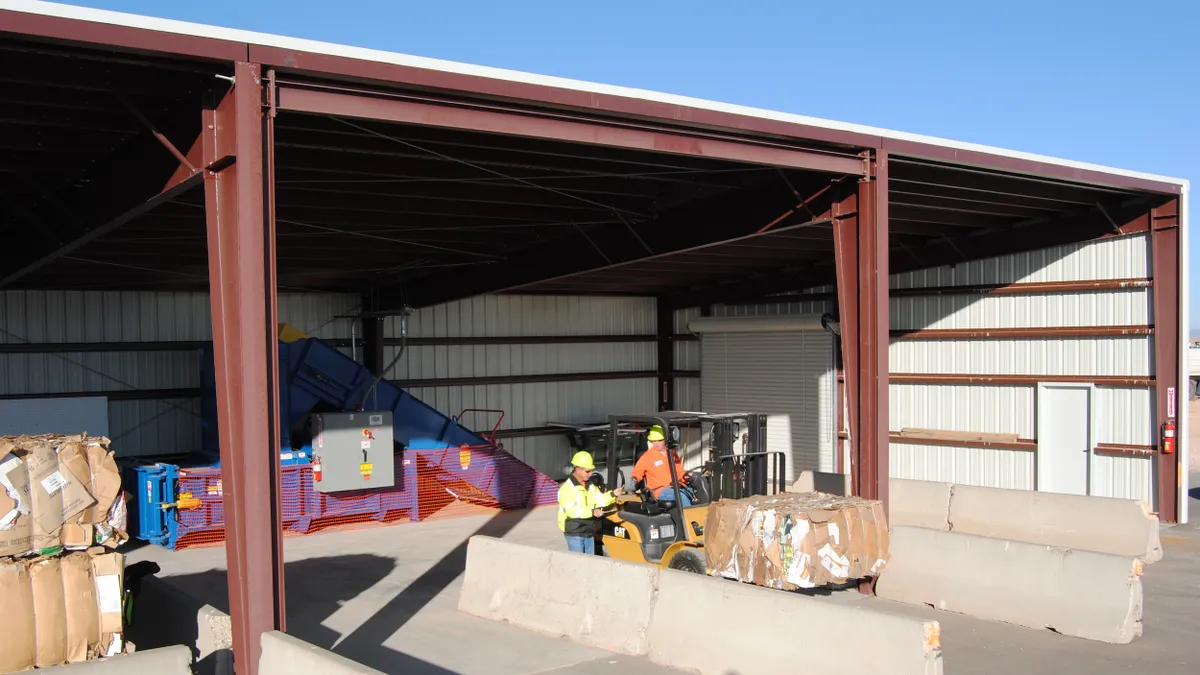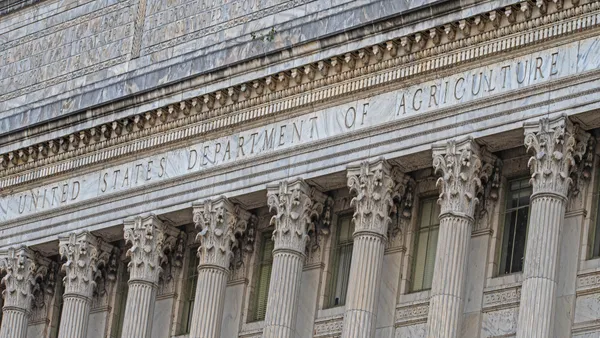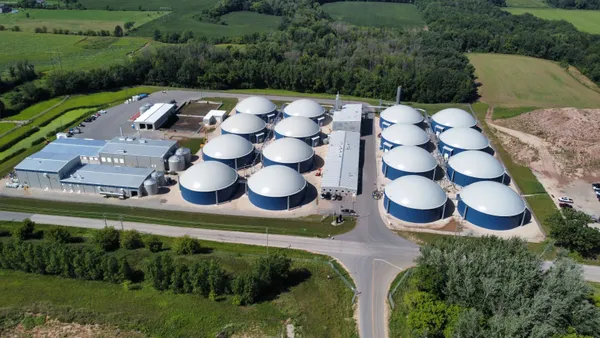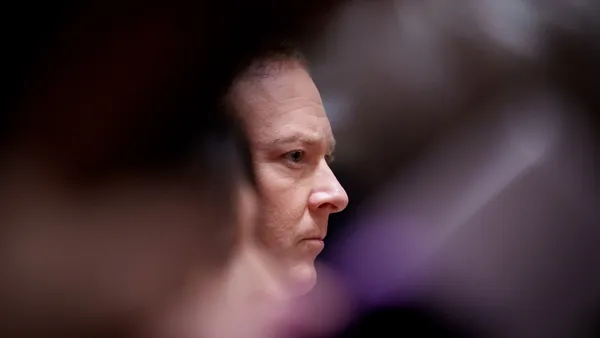Dive Brief:
- Maryland lawmakers ended a subsidy for waste-to-energy facilities as part of an energy reform package passed on the legislature's final day of session on Monday.
- The vote came after years of lobbying from environmental groups. WTE was first included in Maryland's Renewable Energy Portfolio Standard, a mandate for investor-owned utilities to incorporate renewable energy sources, in 2011.
- The bill now goes to the desk of Gov. Wes Moore, who is expected to sign it. The effects of the rule change are unclear for facilities like Win Waste Innovation's mass burn combustion facility in Baltimore.
Dive Insight:
About three dozen states, plus Washington D.C. and several U.S. territories, have enacted levels of renewable portfolio standard policies, according to the National Council of State Legislatures. The policy typically mandates or incentivizes utilities to fund renewable energy production as part of their portfolio, including solar, wind, geothermal and hydroelectric energy. It often includes a goal to reach a certain proportion of renewable energy by a certain year — more than a dozen states have set a goal to reach 100% renewables, per NCSL.
After Maryland’s policy change, 17 states will include municipal solid waste incineration in their renewable portfolio standard policies, according to the Energy Justice Network. Two more states, Ohio and Missouri, include limited forms of incineration.
Some of the policies have incorporated waste-to-energy as a renewable resource, arguing combustable waste is consistently generated. But that assertion has become a target of zero waste groups who argue that calling waste renewable incentivizes jurisdictions not to reduce waste. They have also decried the industrial pollutants that come from combustion.
Marilyn Lynch, executive director of the industry group Waste-to-Energy Association, said Maryland lawmakers were playing politics in their decision to remove waste-to-energy from the Renewable Energy Portfolio Standard.
“Instead, of utilizing modern waste-to-energy (WTE) facilities, [Maryland Senate President Bill Ferguson] wants to send more waste and more money to landfill, one of the leading sources of methane in the country,” Lynch said in an emailed statement. “WTE facilities avoid methane emissions, generate nine times more energy than a landfill and recycle metal.”
When Maryland created its Renewable Energy Portfolio Standard in 2011, the waste industry was optimistic it would support the creation of new incineration facilities in the state. But community opposition to proposed projects, including one planned for the Fairfield area of Baltimore by Albany-based Energy Answers International, ultimately led to their cancelation.
Nevertheless, the policy directed about $100 million in subsidies to incinerators in Maryland and Virginia between 2012 and 2022, according to a report from environmental group Public Employees for Environmental Responsibility. The group projected that a further $200 million in subsidies could be directed toward the facilities from 2023 to 2030 if WTE's inclusion was not repealed.
Baltimore is still home to a mass burn combustion facility that began operation in 1985. Run by Win Waste today, the facility processes about 380,000 tons of Baltimore City’s waste annually and produces enough energy to power more than 31,000 homes each year. Win Waste reached a 10-year contract agreement with the city in 2020, which mandated new pollution control measures. The company subsequently embarked on a $45 million upgrade campaign to reduce air emissions, in line with the new agreement.
Win Waste has opposed efforts to remove WTE from the state's Renewable Energy Portfolio Standard. The company received an estimated $15.5 million in subsidies from 2020 to 2023, The Baltimore Banner reported.
Win Waste has said it may have to shut down the Baltimore facility if its subsidy is removed, threatening its charitable contributions to the community. Win Waste is required to donate $700,000 annually to nonprofits through its contract with Baltimore.
Mary Urban, senior director of communications and community for Win Waste, defended WTE facilities as a “crucial solution for waste management and a valuable energy resources. She said that the bill approved by the legislature this week “misaligns with the views of Maryland residents.”
“Unfortunately, Maryland residents will bear the brunt of its impact,” Urban said in an emailed statement.
Another incinerator, run by Reworld and owned by Montgomery County, Maryland, also remains in operation. The county received at least $29 million in renewable energy credit financing from 2022 through 2024, and that revenue is expected to decline without the subsidy. The county has planned to transition away from incineration for several years, though the timing of that switch remains up in the air.



